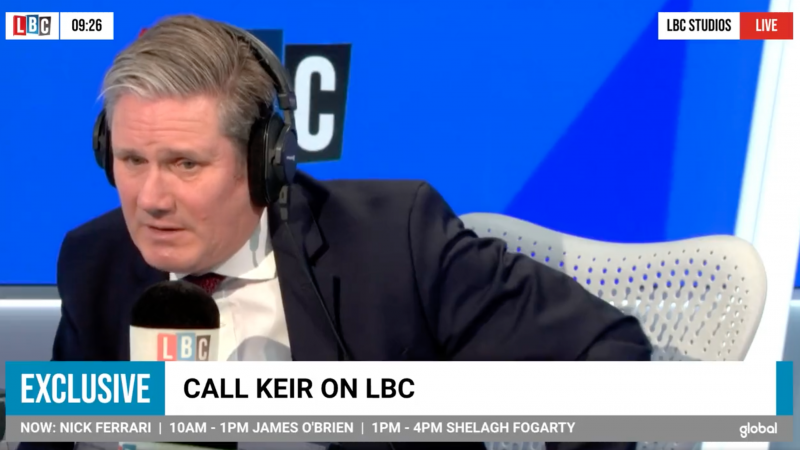
Keir Starmer has urged the government to “go back to the drawing board” in its response to the spiralling cost of living, reiterating Labour’s demand for a windfall tax on the profits of oil and gas companies.
In a public phone-in on LBC radio this morning, the Labour leader emphasised how “very very worried” people are about rising energy bills and outlined his party’s proposals to introduce a windfall tax and cut VAT on energy bills.
Research published exclusively by LabourList earlier this month found that a total of 55% back Labour’s plan to implement a windfall tax on oil and gas companies, which the party has argued have made “bumper profits” over the past few years. Just 9% oppose the idea.
“That’s a tax on the profits that they have made that they didn’t expect to make because the global market prices are so high they’ve made money they didn’t expect to make. I think the phrase they used Nick was more money than they know what to do with,” the Labour leader said.
“Tax that bit, the bit that they didn’t expect to get, and use that to, coupled with the VAT cut, to pay towards the energy bills of people. And that we think could raise up to about £600 for those most in need”
Commenting on complaints from energy companies that such a tax could impact investment in research and development (R&D) in the industry, Starmer argued: “In relation to the profit they expected to make, that’s a fair argument because every company needs to make enough money to be able to plough it back in et cetera.
“The windfall element of this is it’s on money they didn’t expect to make, that they didn’t plan to make – that they never put aside from R&D because the global price has pushed it through the roof. So this doesn’t hold them back on that.”
Starmer criticised what his opposition has described as the government’s “buy-now-pay-later scheme”, which will see bill payers receive a loan in the autumn to cover some of the rise in the cost of energy to be paid back over a five-year repayment plan from April 2023.
“First thing is, it’s about six months after the bill lands, so not that helpful. The loan then has to be repaid in the years to come,” the Labour leader told listeners today.
He stressed that “the real problem” with the approach is that it is based on an “assumption that global prices would come back down again pretty quickly and therefore you wouldn’t notice you were paying off the loan next year and the year after”.
“But that looks pretty unlikely to me, so I mean the government on all these things to do with cost of living has gotta go back to the drawing board,” he added.
Labour first proposed a windfall tax in January. Announcing the policy, Rachel Reeves said: “We are proposing that those North Sea oil and gas companies who are going to making record profits this year because of that big spike in gas and electricity prices pay a bit more in tax to keep bills down for everybody else.”
The Shadow Chancellor argued: “It is right to ask those who have benefited from higher gas and oil prices to pay more into the system and that’s why I’m putting forward a one-off increase in the taxes paid by North Sea oil and gas.”
Asked recently about the potential impact on R&D, Reeves said: “With the big profits [energy companies] are making at the moment, they’re not channelling that into new investment.
“Instead, they are using that money to further push up their share prices, and we’ve also seen big bonuses for the executives at these companies.”
'They've got more money than they know what to do with'
Sir Keir Starmer calls for a windfall tax on the excess profits of energy companies.#CallKeir | @Keir_Starmer | @NickFerrariLBC pic.twitter.com/vb2Etp0DTc
— LBC (@LBC) March 28, 2022




More from LabourList
‘Factionalism at the top is weakening Labour – and handing a gift to Reform’
‘Europe must stand strong on its own as US security guarantees grow conditional’
‘Tackling poverty should be the legacy of Keir Starmer’s government’